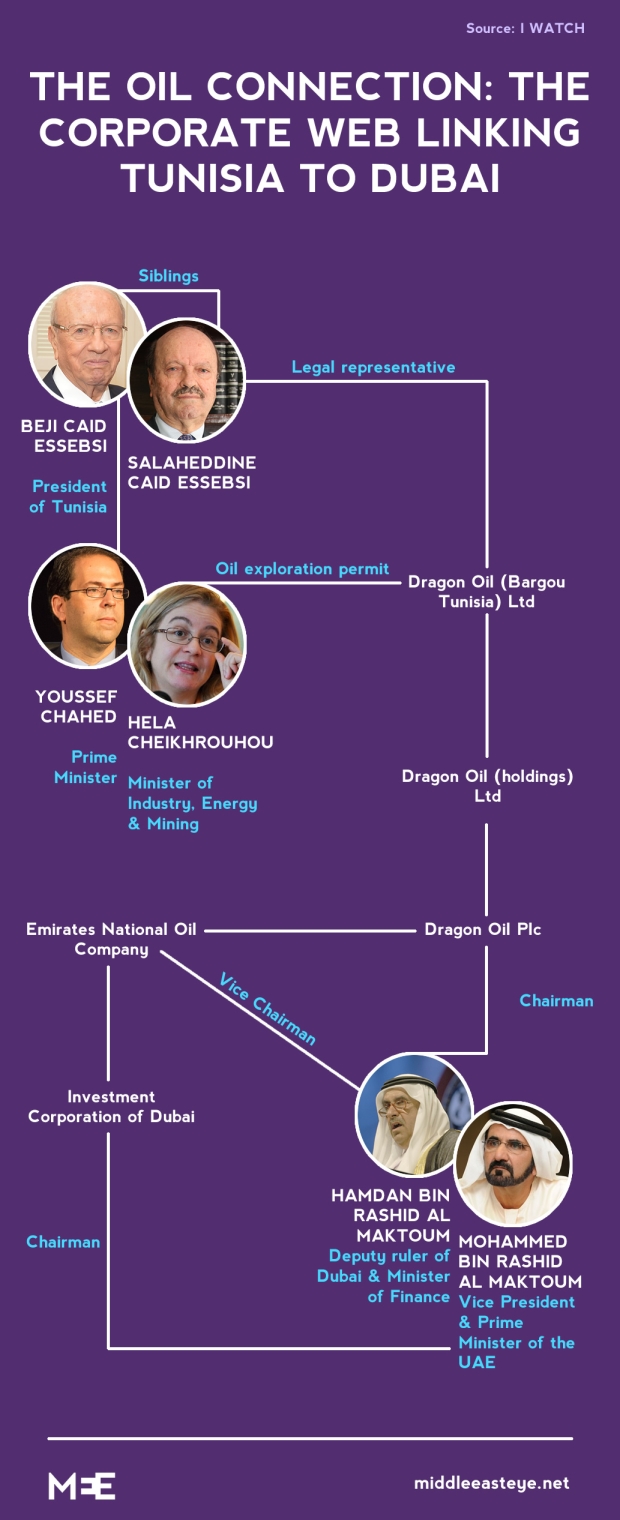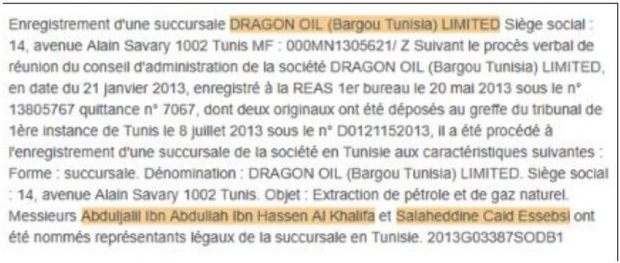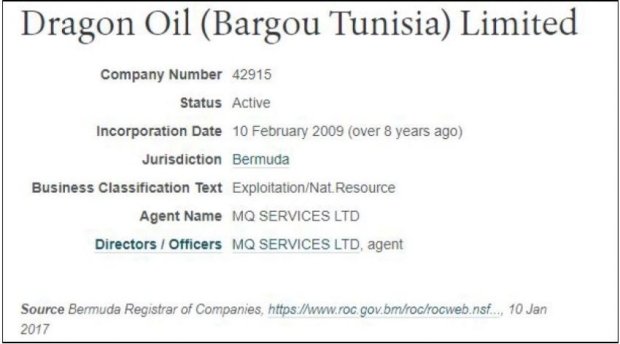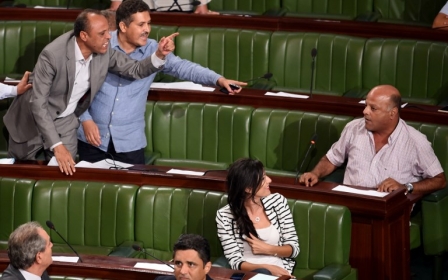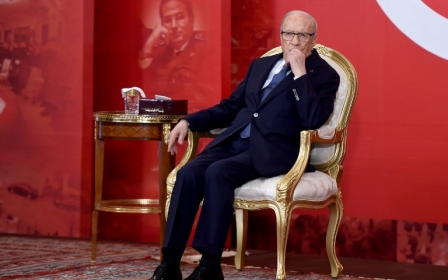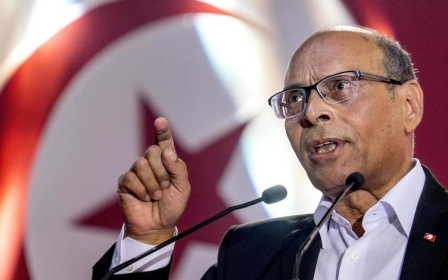REVEALED: Tunisian president's family links to 'illegal' UAE oil deal
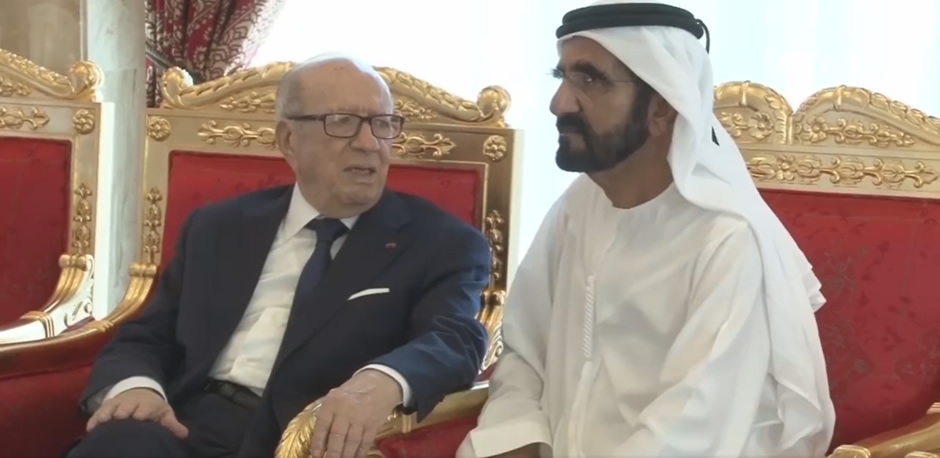
A Bermuda-registered oil company owned by the ruling family of Dubai and legally represented by the brother of Tunisian President Beji Caid Essebsi was handed oil exploration rights by the Tunisian government in a move described as "totally illegal" by a local anti-corruption watchdog.
Documents relating to the deal were published in a report this week by I WATCH detailing links between Salaheddine Caid Essebsi and the Maktoum ruling family of the Dubai emirate, hidden through shell companies registered in the Atlantic island tax haven.
I WATCH, which was set up in the aftermath of Tunisia's 2011 revolution, said the deal appeared to breach laws forbidding exploration rights being granted to companies registered in countries that do not have diplomatic relations with Tunisia.
It also called for a "full investigation" into the government's approval in February of a share deal that allowed Dubai-owned Dragon Oil to inherit an off-shore oil exploration license.
The sale of shares belonging to CEE Tunisia Bargou Limited to Dragon Oil (Bargou Tunisia) Limited was authorised by Hela Cheikhrouhou, Tunisia's minister of industry, energy and mining, despite article 34.5 of the Tunisian hydrocarbon code, which prohibits the sale of interests to a company registered in a country that does not have diplomatic relations with Tunisia.
Tunisia also lists Bermuda, described as the "world's worst corporate tax haven" by aid charity Oxfam in 2016, among a list of territories with which financial transactions are not recognised under a law passed in 2014.
I WATCH spokesperson Cherif El Kadhi told Middle East Eye that "the action of the minister and the government to approve this transaction and accept a Bermuda-registered company is totally illegal".
This is totally illegal
- Cherif El Kadhi, I WATCH
During their investigation, I WATCH discovered that the legal representative of Dragon Oil's Tunisian branch is Salaheddine Caid Essebsi, brother of the Tunisian president, and uncovered links to Dubai's ruling Al-Maktoum family.
Dragon Oil (Bargou Tunisia) Limited, of which Essebsi is the legal representative, is registered in Bermuda and is a subsidiary of Dragon Oil (holdings) Limited.
This, in turn, is owned by Dragon Oil plc, of which Hamdan bin Rashid al-Maktoum, deputy ruler of Dubai and minister of finance for the UAE, is chairman of the board of directors. He is also chairman of the board of directors for the Emirates National Oil Company, of which Dragon Oil is a subsidiary.
This is held by the Investment Corporation of Dubai, of which Hamdan and his brother, Mohammed bin Rashid al-Maktoum, the vice-president and prime minister of the UAE, are also vice-chairman and chairman of the corporation, respectively.
A year later, a row broke out after it emerged that the UAE attempted to buy political influence from Essebsi himself, allegedly trying to persuade Essebsi to "follow the Egyptian model" after the removal of the then president of Egypt, Mohamed Morsi, in a military coup.
In 2017, the former Tunisian president Moncef Marzouki made reference to these allegations, claiming that the forces who worked on the Egyptian coup had attempted to do the same in Tunisia.
On Wednesday, Tunisia's parliament approved a controversial law granting amnesty to officials accused of corruption during the rule of Zine El Abidine Ben Ali, Tunisia's former president who was toppled in the 2011 revolution. The bill was first proposed in 2015 by President Essebsi of the Nidaa Tounes party, who insisted that Tunisia must focus on future development rather than previous crimes.
This is in stark contrast to the declared objectives of the Tunisian government, headed by Prime Minister Youssef Chahed, who declared a "war on corruption" that saw several high-profile businessmen arrested over corruption allegations.
Max Gallien, a North Africa researcher at the London School of Economics, told MEE that this case uncovered by I WATCH is "an important reminder".
"We need to take a critical and broader view at the current government's 'war on corruption'. While arrests always receive public attention, important processes like the fate of the confiscated assets or the creation of new contracts can easily pass under the radar of the mainstream press," said Gallien.
I WATCH told MEE that it demanded a full investigation into the findings of their report, as there are "questions that must be answered".
"They [the government] claim that they are fighting a war on corruption, yet at the same time they allow the reconciliation bill to pass - granting amnesty to corrupt officials - while there are suspicions of corruption hanging over the president, his family and some ministers in government over these links to the UAE. It doesn't make any sense."
'Post-revolution kleptocrats associated to foreign companies are perpetuating Ben Ali's cronyism'
- Mohamed Dhia Hammami, investigative journalist
Mohamed Dhia Hammami, an investigative journalist who has worked on corruption issues in Tunisia, added that the report's findings "give an insight about how post-revolution kleptocrats associated to foreign companies are perpetuating Ben Ali's cronyism".
MEE contacted Salaheddine Caid Essebsi, the Tunisian government and Dragon Oil for comment but had not received any responses prior to publication.
This article is available in French on Middle East Eye French edition.
Middle East Eye propose une couverture et une analyse indépendantes et incomparables du Moyen-Orient, de l’Afrique du Nord et d’autres régions du monde. Pour en savoir plus sur la reprise de ce contenu et les frais qui s’appliquent, veuillez remplir ce formulaire [en anglais]. Pour en savoir plus sur MEE, cliquez ici [en anglais].


